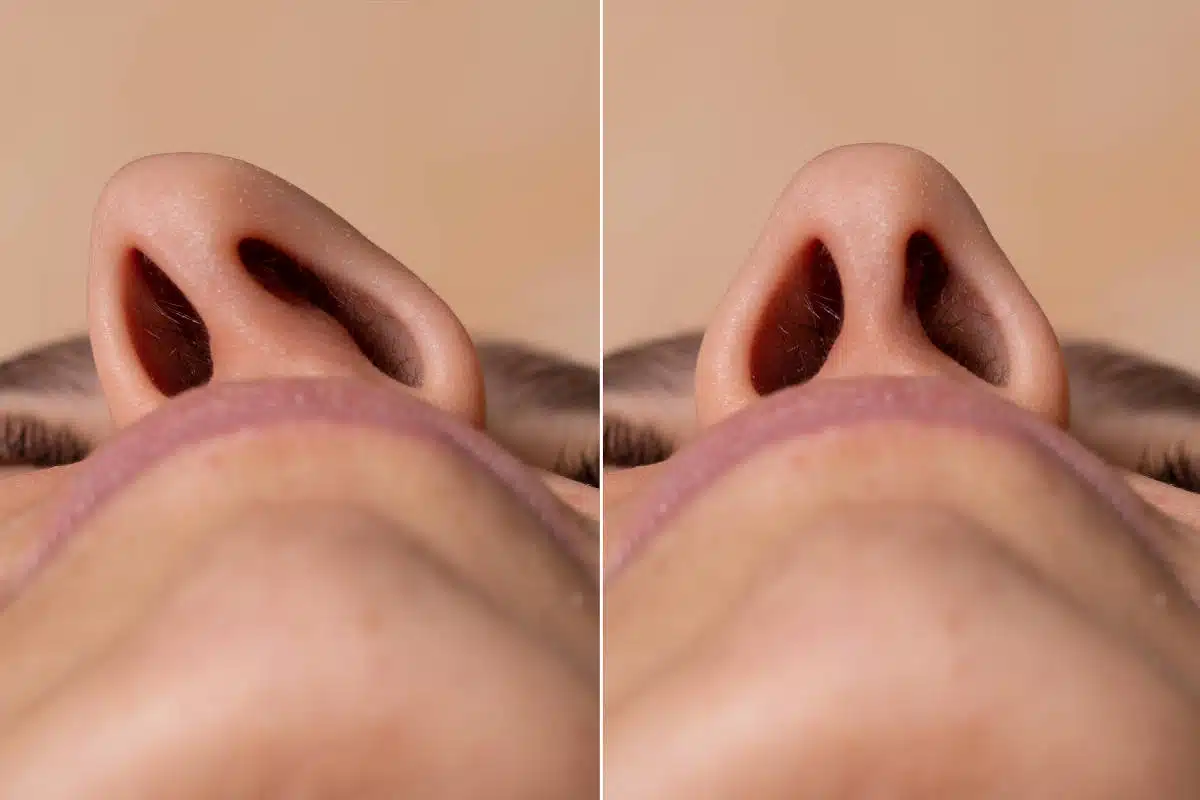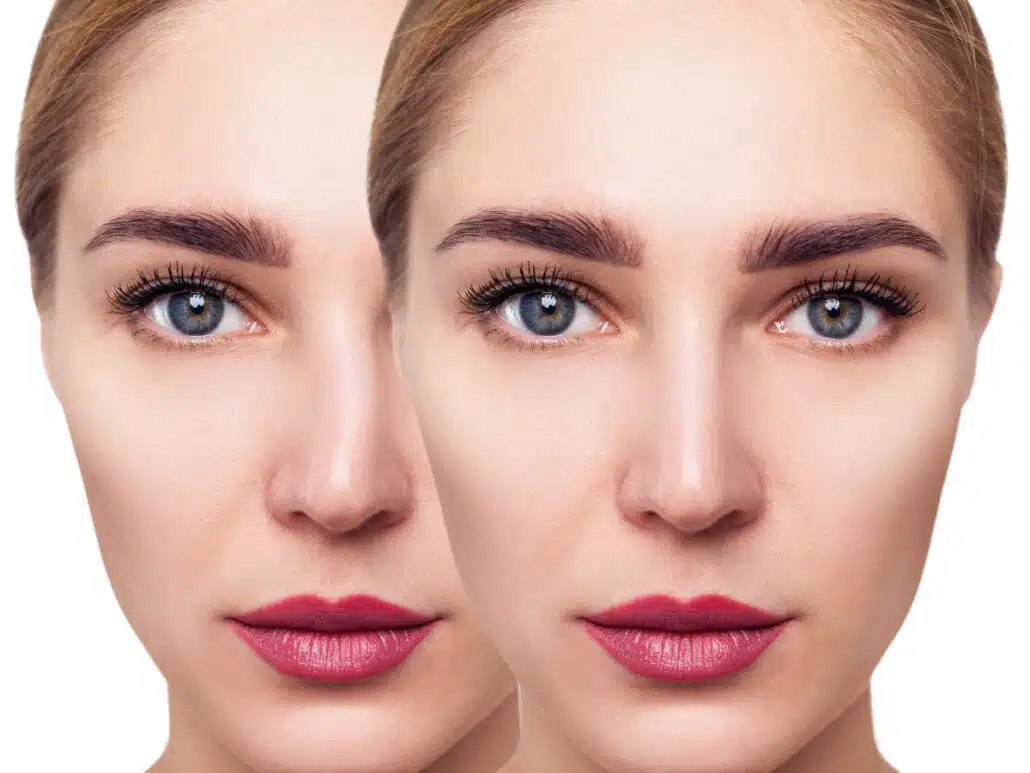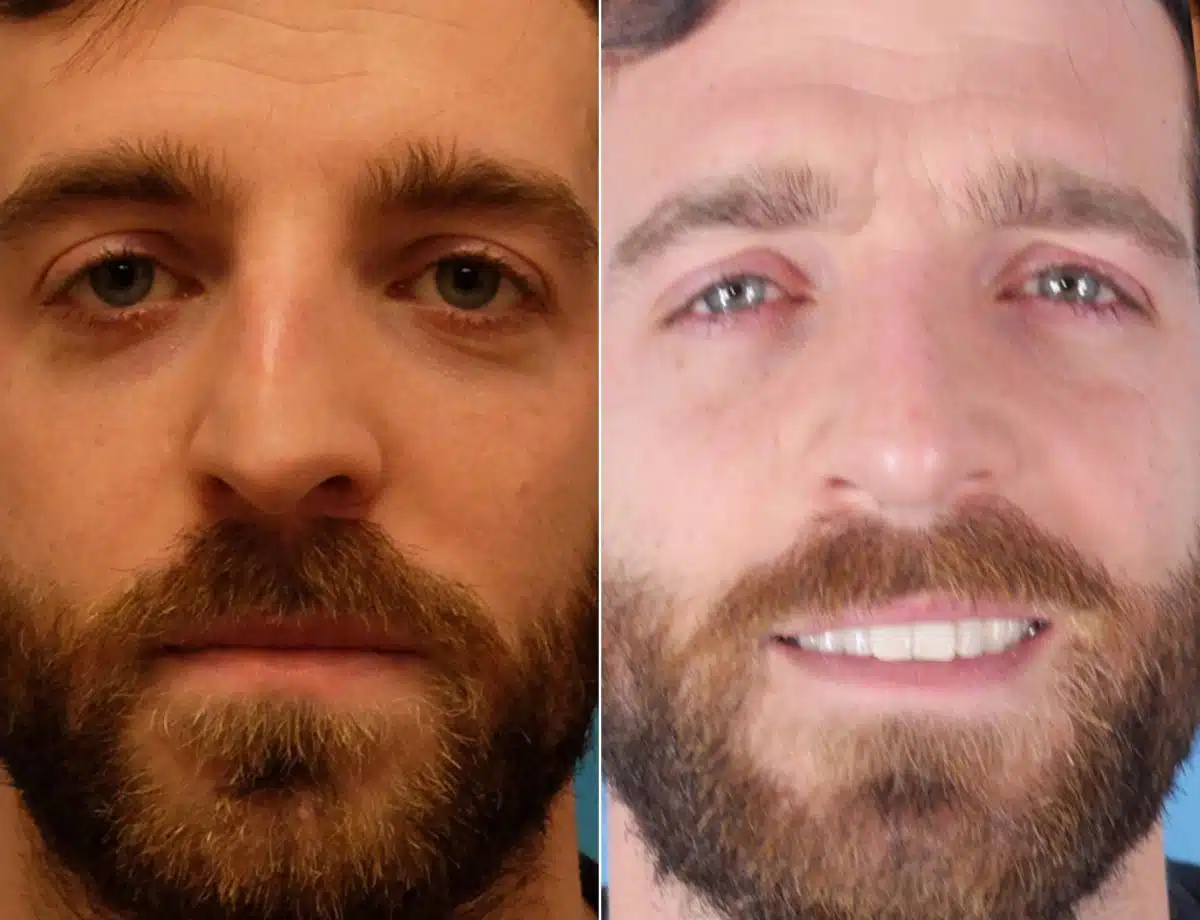What is a Deviated Septum

A severe form of septal deviation is septal shift in which the nasal septum is displaced considerably to one side. The nasal septum is the medial wall consisting of bone and cartilage that makes a separation of the nasal cavity into its two halves. Such displacement can cause the right nasal passage to be blocked or smaller than the left one thus causing one to breathe with difficulties. At its worst, the septum deviation is so severe that one part of the nose is entirely closed off. In some patients, this extra ‘drying’ effect of the airflow will cause bleeding or crusting.
How Common Are Deviated Septums?
A deviated septum is a relatively common condition, affecting the nasal septum, the wall of cartilage and bone that divides the nasal cavity into two separate chambers, or nasal passages. Septal deviation is thought to be present in as many as 80% of individuals in the general population. But in many instances, the condition is asymptomatic and does not need surgical correction. A deviated septum is present at birth in some cases while others are as a result of an injury, aging or due to infections.
There are various problems associated with a deviated septum including nasal congestion, sinus infections, and sleep apnea which will present symptoms such as loud breathing. Some of the signs and symptoms of a deviated septum include; facial pain, recurrent sinusitis, and chronic sinusitis. Deviation in septa is possible if the nose is involved in contact sports or accidents, hence nasal injury is a major cause of septal deviation.
What are the symptoms of a Deviated Septum?
Depending on the severity of the deviation and the individual’s overall nasal health, the symptoms of a deviated septum can vary. Common symptoms include:
Nasal congestion
Nasal obstruction or blockage is one of the most popular symptoms of a deviated septum. This may be as a result of blockage which can be caused by the septum deviation or inflammation of the nasal mucous membrane or both.
Difficulty breathing
Breathing through the nose becomes a problem when one has a deviated septum which is another symptom. This can be particularly disturbing during exercises or any other activity that demands the opening of nasal passages for sufficient airs supply.
Constant sinus infections
The condition may further alter the usual pattern of sinus drainage and hence promote the formation of mucus blockage and increases the likelihood of sinus infection. People suffering from a deviated septum also have a higher tendency of developing cases of chronic or frequent sinusitis.
Frequent nosebleeds
Airflow affects the nasal tissues such that they dry up, and this will lead to crusting and bleeding especially to those who have a deviated septum. If one experiences nosebleeds often, this could be a sign of a deviated septum especially if it is experienced from the same side of thee nostrils.
Sleep Disorders
Sleep disorders including snoring and sleep apnea may be caused by a deviated septum as this hinders the flow of air through the nasal passage. This can cause snoring, sleep interruption and poor quality of life.
Headaches
Headaches may also be present if the deviation is severe enough to lead to chronic sinusitis or nasal congestion. This pressure in the sinus cavities and in the nasal passages can result to disabling headaches in some people.
Secure Your Safe Treatment Experience with Dr. Daniel G. Becker.
Join our satisfied clients who’ve experienced safe, effective treatments.
Diagnosis of a Deviated Septum

Diagnosis of a deviated septum can be made by physical examination which involves checking for deformities of the nasal septum, nasal cavity, and nasal passages. The healthcare provider may employ a nasal speculum, otoscope or nasal endoscopy to inspect the nasal passages and look for evidences of nasal blockage, sinusitis or other symptoms that are related to the deviated septum.
During the examination, the healthcare provider will also evaluate the patient’s breathing during sleep, noisy breathing, facial pain, and any history of nose injury or nasal symptoms. They may inquire about any risk factors, such as participation in contact sports or previous nasal surgery, that could contribute to the development of a deviated septum.
How is a Deviated Septum Treated?
The selected treatment for a deviated septum will depend on the presence of bothersome symptoms and the severity of the condition. In mild cases, medical therapy may be sufficient to manage symptoms and improve overall nasal health. This can include the use of saline nasal sprays, decongestants, antihistamines, or corticosteroid nasal sprays to reduce inflammation and congestion. On the other hand, more severe deviations, which are characterized by frequent sinus infections, may require sinus surgery.
What Home Treatments there are for a Deviated Septum
If you have a mild nasal deviation with symptoms that can be managed, there are several home treatments that can help alleviate discomfort and improve your quality of life. These include:
Nasal corticosteroid sprays
Prescription nasal corticosteroid sprays can help reduce inflammation in the nasal passages, making it easier to breathe. They can also help alleviate symptoms of allergies, which can worsen nasal congestion.
Using a humidifier
Adding moisture to the air with a humidifier can help soothe dry and irritated nasal tissues, reducing the risk of nosebleeds and improving overall nasal comfort.
Decongestants
By narrowing the blood vessels in the nasal passages, over-the-counter decongestants in the form of pills or nasal sprays can help relieve nasal congestion. However, these should be used with caution, as overuse can lead to rebound congestion and worsen symptoms.
Saline rinses
Using a saline nasal spray or performing a nasal rinse with a saline solution can help keep the nasal passages moist, reduce inflammation, and flush out mucus and allergens.
Antihistamines
If your deviated septum symptoms are exacerbated by allergies, over-the-counter or prescription antihistamines can help reduce allergy symptoms and improve nasal comfort.
Quitting smoking
Smoking can worsen nasal congestion and inflammation, so quitting smoking can significantly improve your nasal symptoms and overall health.
Frequently Asked Questions
What causes a deviated septum?
A deviated septum can be caused by a variety of factors, including congenital issues present at birth, injuries to the nose, aging, and infections. Some people have a deviated septum at birth, while others develop it over time due to these factors.
What is the appearance of a deviated septum?
In some cases, a deviated septum may not be visible from the outside of the nose. However, in more severe cases, the external appearance of the nose may be crooked or asymmetrical due to the underlying septal deviation.
Is it possible to fix a deviated septum by pushing it back in place?
No, a deviated septum cannot be fixed by simply pushing it back into place. The treatment for a deviated septum typically involves medical therapy or surgical intervention, depending on the severity of the condition and the presence of bothersome symptoms.
Is surgery necessary to correct a deviated septum, or can it resolve on its own?
In cases of minor deviation with manageable symptoms, surgery may not be necessary. However, in more severe cases where symptoms significantly impact daily life, surgical intervention may be required to correct the septal deviation and improve quality of life.
At what point should medical attention be sought for a Deviated Septum?
If you are experiencing persistent or severe symptoms related to a deviated septum, such as difficulty breathing, constant sinus infections, frequent nosebleeds, or sleep disorders, it is important to consult with a healthcare provider for an accurate diagnosis and effective treatment options.
What questions should I ask during my consultation?
During your consultation with a healthcare provider, consider asking the following basic questions to better understand your condition and initial treatment options:
#1 – How severe is my deviated septum, and what is the cause?
#2 – What are the potential risks and complications associated with my deviated septum?
#3 – What non-surgical treatment options are available to help manage my symptoms?
#4 – Are there any lifestyle changes I can make to improve my nasal health and alleviate symptoms?
#5 – In your professional opinion, do you recommend surgery to correct my deviated septum?
Schedule an Appointment with a Rhinoplasty Specialist
If you suspect you have a deviated septum and are experiencing bothersome symptoms, it is important to consult with a rhinoplasty specialist for an accurate diagnosis and to discuss your treatment options. Becker Rhinoplasty Center, led by the renowned Dr. Daniel G. Becker, offers expert care in the field of rhinoplasty and septoplasty. With a focus on patient education and satisfaction, Dr. Becker and his team will work with you to determine the best course of action for your individual needs. Click here to schedule a consultation at one of their convenient New Jersey locations.

